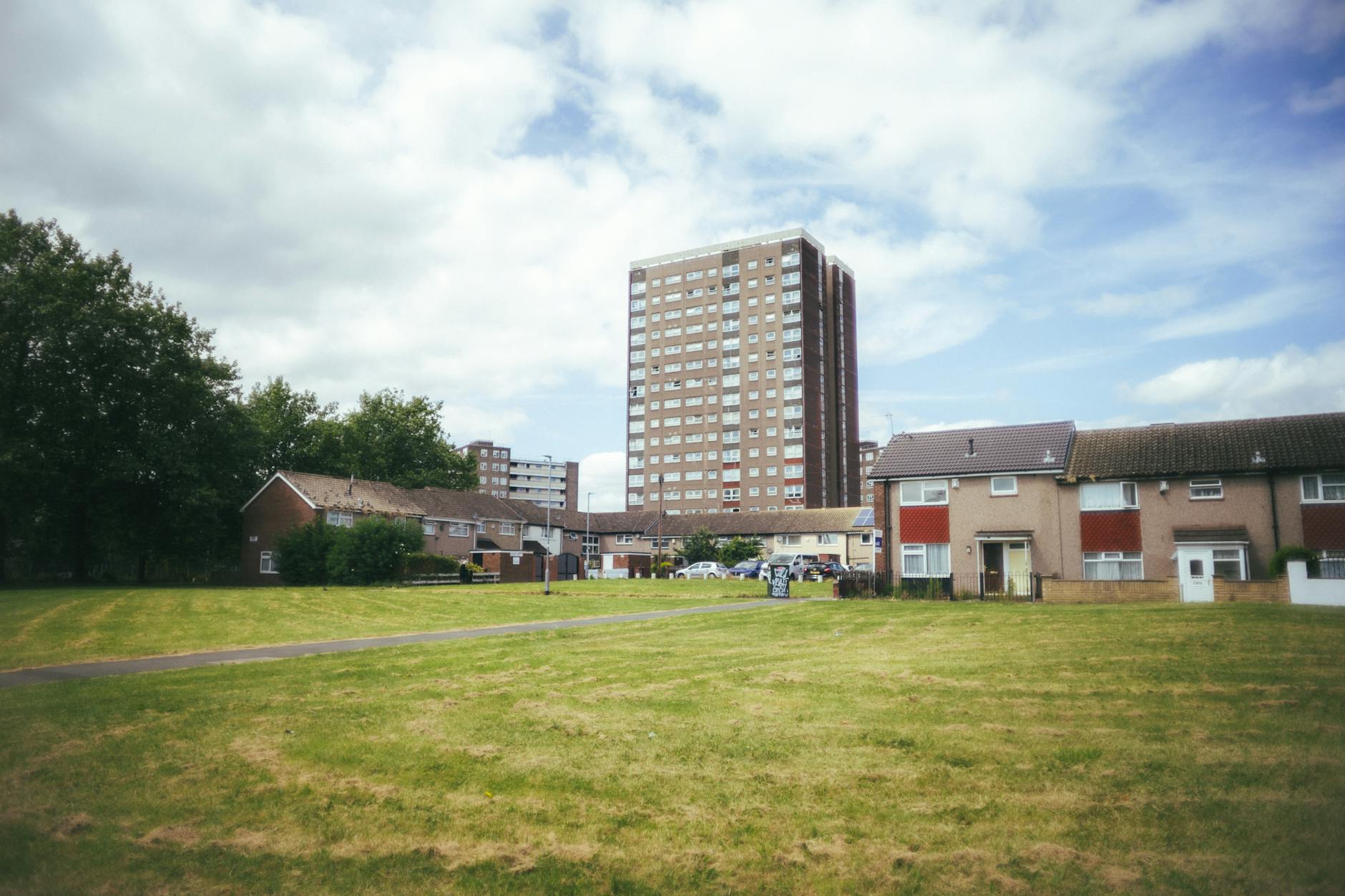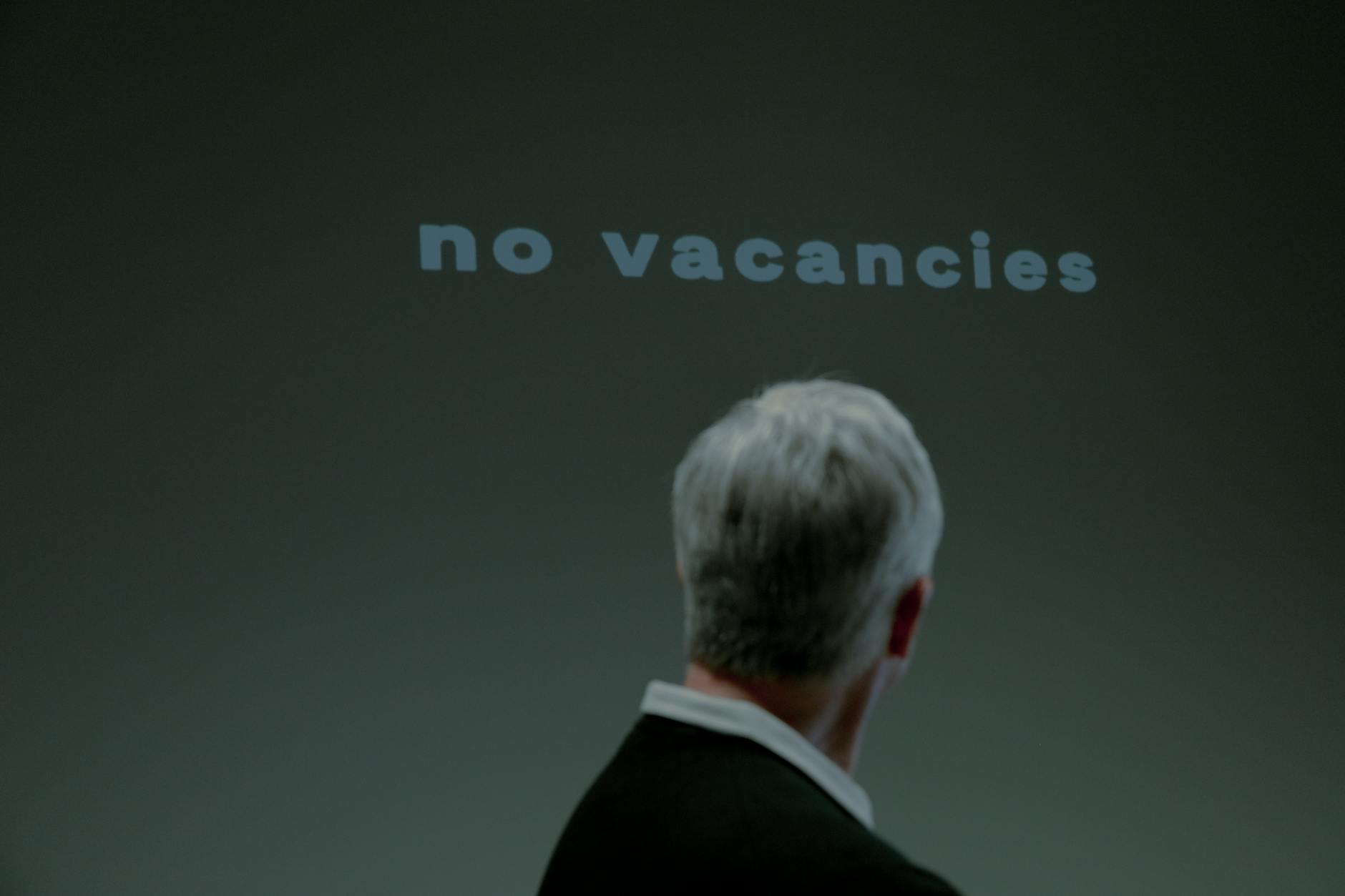Leeds is a city full of energy and opportunity, yet it comes with its own set of hurdles for residents. From navigating heavy traffic to tackling affordability concerns, living here has its complexities. While Leeds offers a vibrant cultural scene, diverse neighbourhoods, and strong job prospects, issues such as crime rates and housing demands can make daily life challenging. If you’re considering calling Leeds home, understanding these realities can help you prepare and make the most of this dynamic city. For example, knowing how to avoid cleaning mistakes in your Leeds home could help you maintain a hassle-free living experience (10 Cleaning Mistakes Leeds Homeowners Make).
Housing Market Struggles in Leeds
Leeds is known for its buzzing urban life and excellent career opportunities. But let’s not sugar-coat it—finding a place to live here can often feel like an uphill battle. From skyrocketing rent costs to the hurdles of securing a tenancy, the housing market presents significant obstacles. Here’s a closer look.
Skyrocketing Rent Prices
Photo by Ffion Scott
Renting in Leeds has become increasingly expensive, especially in sought-after areas like the city centre, Headingley, or Chapel Allerton. Over the past few years, rental costs have surged at a pace that far outstrips wage growth, leaving many struggling to keep up. So, what’s driving this escalation?
A combination of high demand and low supply has created fierce competition among renters. Plus, new luxury developments prioritise premium apartments, bumping up overall averages. With some one-bedroom flats exceeding £1,200 a month in prime locations, it’s no wonder many people feel priced out. Flambard Williams House Price Forecast for Leeds also highlights how expected price trends will likely intensify this issue.
Limited Affordable Housing
Affordable housing feels like a distant dream for many living in Leeds. The city does offer housing options through council schemes, but these initiatives often fall short given soaring demand. Students, low-income earners, and even working professionals increasingly find it hard to locate a home within their budget.
The issue extends beyond pricing. Much of Leeds’ affordable housing stock is older and may not meet the standards or locations residents prefer. And while shiny, new developments spring up, only a fraction is reserved for more budget-friendly living. A recent vision outlined by Leeds City Council aims to reform the local housing market, but will it bring quick relief? For many, the wait feels endless.
Challenges of Securing Tenancy Deposits
Moving to or renting in Leeds isn’t just about affording the rent—there’s also the issue of tenancy deposits. On average, renters need to cough up a minimum equivalent of five weeks’ rent. For those already tight on savings, this can feel like a mountain they just can’t climb.
And it doesn’t end there. Many tenants in Leeds report struggles with deposit returns. Landlords often demand strict adherence to cleaning and maintenance standards upon move-out. If you’re not careful, this could leave you out of pocket. For renters looking for a practical solution to protect their deposit, arranging professional services such as end of tenancy cleaning in Leeds can help safeguard against unnecessary disputes.
Each of these challenges highlights the complexities of living in Leeds. Whether you’re a long-term resident or a newcomer, understanding these housing dynamics is essential for navigating the market more effectively.
Public Transport and Traffic Issues
Living in Leeds, one thing becomes abundantly clear: getting from Point A to Point B isn’t always as straightforward as you’d hope. From patchy public transport to city-wide congestion, navigating daily life here presents its challenges. Let’s break it down.
Public Transport Limited Coverage
While Leeds does have buses, trains, and a burgeoning network of cycling infrastructure, public transport doesn’t cover all areas equitably. For residents in outer suburbs like Rothwell or Bramhope, the availability of frequent and direct services can be sparse, forcing many to rely on personal vehicles. This adds to household costs and increases traffic on already bustling roads.
Moreover, even in better-serviced areas, residents often find routes and timetables inconvenient, especially for early mornings or late-night journeys. For instance, workers with irregular hours or those travelling to Leeds Bradford Airport may find planning heavily reliant on taxis or car hires. Leeds’ transport system lacks the efficiency seen in other comparable UK cities, leaving many to mutter, “Wouldn’t a light rail solve so much of this?”
Connecting Leeds Transport Strategy outlines future plans for enhancing public transport connectivity, but as it stands, gaps in the network affect both convenience and sustainability.
Traffic Congestion During Peak Hours
If you’ve ever been stuck on the Leeds Inner Ring Road or attempting to join the M62 at rush hour, you’ll know just how frustrating traffic can get. Leeds consistently ranks among the worst UK cities for gridlock during peak times (Yorkshire Evening Post).
Morning commutes often see lengthy delays, whether you’re heading into the city for work or simply navigating junctions clogged with exhaust fumes. Broken traffic signals or wet weather only compound the issue. It’s not just lost time that’s frustrating—it’s the sense of futility in sitting bumper to bumper, knowing frequent delays are an everyday reality. Efforts to mitigate congestion have shown incremental progress but still leave plenty to be desired.
And beyond personal inconvenience, congestion also amplifies air pollution across Leeds. In some neighbourhoods, levels of pollutants such as nitrogen dioxide reach concerning thresholds, impacting public health as noted in a Local Challenges Leeds PDF.
Parking Dilemmas
Parking in Leeds can sometimes feel like a logistical nightmare, especially if you’re trying to find a spot in the city centre. Limited spaces combined with high demand mean drivers often end up circling endlessly for that elusive free bay.
Adding insult to injury, parking fees are far from wallet-friendly. In busy areas like The Light or Trinity Shopping Centre, hourly costs can quickly stack up. It’s no better in residential areas, as streets near the city centre see residents competing with commuters for the few available spots.
The challenges extend to suburban Leeds as well, particularly in densely populated pockets. Even causing headaches during consultations on transport and safety plans (West Leeds Dispatch), concerns over inconsiderate parking and lack of secure areas often dominate discussions.
Considering Leeds’ size and continued growth, better parking infrastructure and stronger policies would offer much-needed relief to drivers already pushed to their limits.
Employment and Career Growth Challenges
Leeds, often hailed as a thriving hub of commerce and opportunity, offers an exciting job market that attracts a diverse workforce. However, this appeal also brings its own set of hurdles for those either entering or advancing within their careers. While some sectors show enormous promise, others lag behind, creating a unique economic landscape that might leave job seekers and professionals feeling overwhelmed.
Job Market Competitiveness
Photo by Ron Lach
Leeds boasts a broad range of industries, from finance and digital to health and creative arts. Yet, it’s precisely this broad appeal that makes the job market incredibly competitive. With an influx of recent graduates from universities like Leeds Beckett and the University of Leeds, combined with experienced professionals moving from other cities, certain roles are fiercely contested.
Graduates often face challenges simply because supply outweighs demand. Positions in highly popular fields such as marketing, media, and tech see hundreds of applicants vying for limited spots, leaving many talented individuals either settling for unrelated roles or working lower-paid entry-level jobs to gain experience.
For professionals aiming for middle or senior management roles, networking and continuous skill improvement become non-negotiable. Employers in Leeds typically prioritise local experience, which can make landing a job harder for those new to the city. While Leeds offers significant opportunities, applicants often need thick skin and innovative ways to stand out in such a dense crowd. For a closer look at employment trends in the area, there’s a detailed report on LEEDS CITY REGION EMPLOYMENT AND SKILLS PLAN.
Limited Opportunities in Specific Sectors
Despite Leeds’ versatility, not every industry thrives equally. While healthcare and professional services are booming, other sectors such as manufacturing, agriculture, or certain types of engineering haven’t seen equal levels of growth. This unevenness creates an imbalance that limits options for professionals in some fields.
Take the arts industry, for example. While Leeds hosts events like the Leeds International Film Festival or projects such as Leeds2023, many creative professionals find the available work too sporadic or poorly paid to form a sustainable career. Similarly, Leeds’ retail sector, impacted by national and global trends, continuously grapples with high-street store closures, offering fewer stable roles.
The issue often stems from broader economic factors. National challenges like Brexit and energy costs have affected certain industries more than others. This economic ripple effect means some talented professionals may find themselves relocating out of Leeds altogether, pursuing roles in cities better aligned with their expertise.
Cost of Living Adjustment Challenges
Leeds may have a lower cost of living compared to London or Manchester, but when you weigh local salary averages against rising living expenses, the gaps still persist. Salaries in key industries often feel misaligned with how fast rent, energy bills, and daily expenses are climbing. Many individuals find it difficult to bridge the gap.
- Rent vs Wages: Living closer to the city centre for job convenience often requires spending a significant chunk of your monthly paycheck on rent. For roles such as administrative work or retail, wage levels may not even clear this hurdle.
- Inflation Impact: Rising food prices, coupled with growing public transport costs, push employees to seek either higher wages or side hustles, adding stress to balancing work and life.
- Remote Work Debate: Some Leeds companies offer the flexibility of remote work, lowering commuting costs. However, many businesses still stick to traditional office models, pushing employees to endure longer and costlier daily routines.
This imbalance creates a reality where even solid salaries can feel stretched thin. If you’re contemplating moving to Leeds for work, it’s worth reading about planned economic development strategies designed to tackle these discrepancies for future generations.
These multi-layered challenges shape the career landscape in Leeds, emphasising the city’s need to make employment more accommodating and reflective of its living standards.
Environmental and Cleanliness Concerns
Living in Leeds, while exciting, comes with its share of environmental challenges that can affect quality of life. From air pollution to waste collection woes, urban living creates unique hurdles that demand attention. If you’ve ever wondered why keeping your surroundings clean feels like an uphill battle, the following breakdown sheds light on these pressing issues and offers practical solutions.
Urban Pollution: Detail Urban Pollution Levels and Their Effect on Health and Lifestyle
Photo by Mikhail Nilov
Leeds, like many thriving cities, grapples with urban pollution. The city’s busy roads contribute significantly to local air quality problems. Nitrogen dioxide levels often exceed health safety limits, particularly in high-traffic zones such as the city centre and major commuting routes.
The impact doesn’t stop at the air we breathe. Pollution affects daily life, leading to respiratory issues, cardiovascular problems, and missed work or school days for those suffering from chronic conditions. Beyond health, polluted air dampens the city’s aesthetics, often leaving grime build-up on buildings and public infrastructure. It’s an invisible, yet persistent burden that weighs on everyone living or working in the city. For a deeper dive into how urban pollution harms health globally, check out Air Pollution and Your Health.
Waste Management Issues: Inconsistent Waste Collection and Recycling Services
Residents in Leeds frequently express frustration over inconsistent waste management services. Missed rubbish collections, lack of scheduled recycling pickups, or confusion about waste categorisation regularly spark complaints. While the Leeds City Council attempts to address these pitfalls, results can often feel fleeting or patchy depending on neighbourhoods.
This unpredictability may lead to overflowing bins in residential areas, attracting pests and further impacting the cleanliness of the environment. If you’re aiming to stay organised and proactive with your household cleaning, following a clear checklist can save time and effort. Here’s a guide that might help: Find Your Ideal Leeds Cleaning Company: A Handy Checklist.
The solution also lies in collective community awareness—sorting recyclables correctly and adhering to designated pickup schedules can make a significant difference. Engaging with local programmes aimed at educating households on waste segregation could provide some relief to the overburdened system.
Gutter and Outdoor Maintenance Struggles: Common Challenges for Homeowners
Maintaining outdoor spaces and home exteriors, particularly gutters, presents another issue in Leeds’ mostly urban living landscape. With frequent rainfall and dense tree coverage in some areas, gutters clog too easily, leading to water damage and dampness in homes. Yet, gutter cleaning remains an overlooked task, often leaving homeowners in a bind when leaks or cracks emerge.
Regular maintenance can keep these problems at bay. It’s essential to monitor your gutters and perform seasonal cleaning to clear debris and ensure proper water flow. For practical tips on identifying gutter issues early, visit Signs You Need Professional Gutter Cleaning in Leeds.
Taking proactive steps can also reduce long-term expenses. Whether you consider hiring a professional service or tackling light upkeep yourself, establishing a routine not only protects your property but supports the broader appeal of well-kept Leeds neighbourhoods.
Each of these issues—pollution, waste management, and home maintenance—require active participation from residents and authorities alike to create lasting change. Addressing these concerns starts with awareness and small, consistent improvements, paving the way for a cleaner Leeds.
Social and Cultural Adjustment
Life in a multicultural city like Leeds has its benefits, but it can also present a variety of challenges for new residents. From adapting to diverse communities to navigating social amenities, settling in can feel overwhelming at times. Here, we explore key aspects that make social and cultural adjustment a hurdle for many.
Adapting to Community Diversity
Leeds is proudly one of the most diverse cities in the UK, with communities hailing from various cultural, ethnic, and religious backgrounds. While this diversity enriches the city with vibrant festivals, cuisines, and traditions, integrating into such a diverse community can be daunting.
For newcomers, understanding and respecting different customs while navigating their own identity within this diversity is no small feat. Miscommunication or a simple lack of cultural awareness can sometimes result in unintentional misunderstandings. Additionally, forging relationships with neighbours who might have entirely different life experiences can require extra patience and effort.
It helps to engage with community groups or cultural events to ease this adjustment. For example, local initiatives like those found on pages outlining equality and diversity in Leeds reveal how embracing inclusion positively impacts social integration. Starting with small steps, like attending local meet-ups or joining cultural workshops, can bridge gaps and build new connections.
Access to Social and Recreational Facilities
For many residents, accessing social hubs or affordable recreational spaces is a common grievance. While Leeds boasts various parks, leisure centres, and community areas, not everyone finds these amenities accessible. For some, the cost of memberships or entry fees is simply out of reach, while for others, the problem lies in the uneven distribution of these facilities across the city.
Residents in areas like Harehills or Seacroft are more likely to face challenges in finding nearby affordable spaces to relax or socialise. This often leads to an over-reliance on low-cost options that may lack proper maintenance or safety guarantees. On the other hand, well-maintained spaces in areas like Headingley may feel inaccessible due to financial constraints.
Creating a sense of belonging often starts with these recreational spaces. Affordable access to gyms, libraries, and even cultural centres can make a significant difference in people’s lives, allowing them to engage with their communities in meaningful ways. Efforts to close this gap are ongoing, yet for many, it remains a frustrating barrier.
Mental Health and Wellbeing Concerns
Urban living in Leeds brings with it its own set of mental health challenges. From the pressure to “fit in” socially to the isolation that comes with relocating, many residents report feeling the strain on their mental wellbeing. This is especially true for those juggling the demands of work, family life, and cultural adjustment.
Sometimes, the solution begins at home. Organised and clean living spaces are proven to boost mental clarity, helping individuals feel less overwhelmed. You can learn more about how maintaining a clean home positively impacts wellbeing in this comprehensive guide on the role of a clean home in mental clarity.
However, the issue isn’t confined to individual efforts. Community-level resources for mental health, while present, often struggle to meet high demand. Local counselling services or charity-led initiatives are critical, yet some residents feel uncomfortable accessing these resources due to social stigma or insufficient outreach. This leaves individuals quietly wrestling with their challenges, a situation that the city must address through more inclusive and prominent mental health services.
Recognising these social and cultural struggles makes it clear that adjustments go far beyond moving boxes and unpacking. Each small improvement — whether through local initiatives, affordable amenities, or personal home environments — plays a role in making Leeds a welcoming space for everyone.
Conclusion
Leeds is a city full of opportunity, but it’s not without its difficulties. From high living costs and housing concerns to transport gaps and environmental challenges, each aspect requires adaptation and forward-thinking solutions. Balancing the city’s vibrant culture and economic potential against these struggles is key to thriving here.
Practical steps, such as investing in professional services like residential cleaning in Leeds, can ease some common frustrations, creating time to focus on enjoying all the city has to offer. Whether you’re battling a packed schedule or trying to maintain your home’s upkeep, small changes make a big difference.
Leeds’ challenges also present room for growth, both for the city and residents. What hurdles do you see as the most pressing? Let’s share ideas to make Leeds not only functional but truly exceptional.



